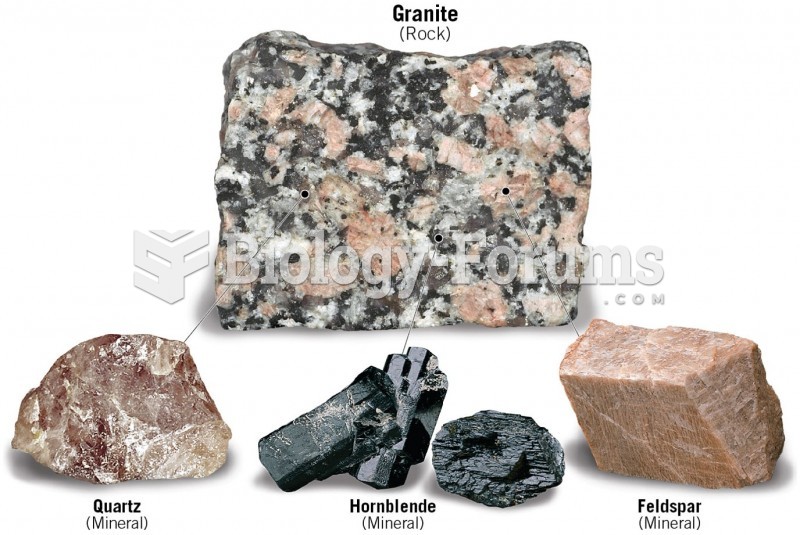|
|
|
Dogs have been used in studies to detect various cancers in human subjects. They have been trained to sniff breath samples from humans that were collected by having them breathe into special tubes. These people included 55 lung cancer patients, 31 breast cancer patients, and 83 cancer-free patients. The dogs detected 54 of the 55 lung cancer patients as having cancer, detected 28 of the 31 breast cancer patients, and gave only three false-positive results (detecting cancer in people who didn't have it).
In ancient Rome, many of the richer people in the population had lead-induced gout. The reason for this is unclear. Lead poisoning has also been linked to madness.
Children with strabismus (crossed eyes) can be treated. They are not able to outgrow this condition on their own, but with help, it can be more easily corrected at a younger age. It is important for infants to have eye examinations as early as possible in their development and then another at age 2 years.
When Gabriel Fahrenheit invented the first mercury thermometer, he called "zero degrees" the lowest temperature he was able to attain with a mixture of ice and salt. For the upper point of his scale, he used 96°, which he measured as normal human body temperature (we know it to be 98.6° today because of more accurate thermometers).
In 1886, William Bates reported on the discovery of a substance produced by the adrenal gland that turned out to be epinephrine (adrenaline). In 1904, this drug was first artificially synthesized by Friedrich Stolz.
 The Cardiac Landmarks. A = Aortic Area; P = Pulmonic Area; E = Erb’s Point; T = Tri
The Cardiac Landmarks. A = Aortic Area; P = Pulmonic Area; E = Erb’s Point; T = Tri
 Draw and label a diagram and explain how a factor-dependent transcription (rho-dependent) terminator
Draw and label a diagram and explain how a factor-dependent transcription (rho-dependent) terminator
 The bimetallic temperature sensor spring controls the amount of silicone that is allowed into the ...
The bimetallic temperature sensor spring controls the amount of silicone that is allowed into the ...




